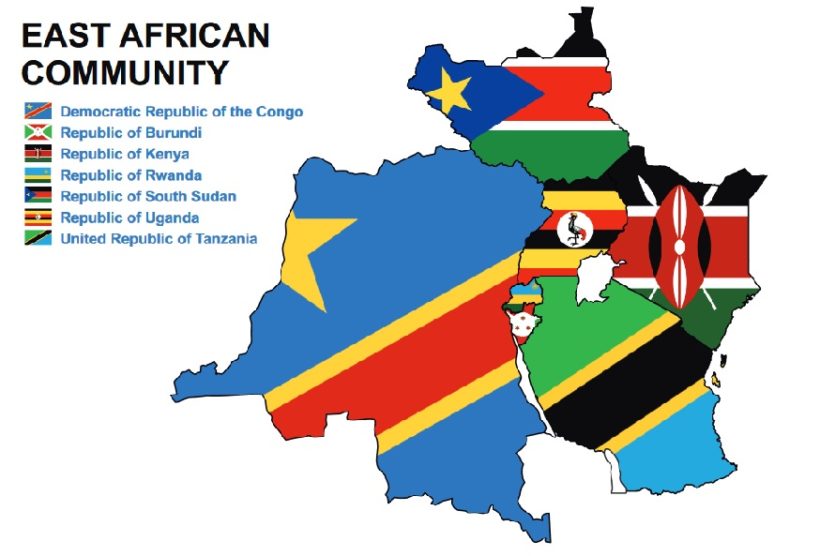At a meeting in the Kenyan capital, the governments of five of the seven countries belonging to the East African Community launched a plan to prevent the outbreak of a new armed conflict in the North Kivu region in the northeast of the Democratic Republic of Congo.
The heads of state and government of Kenya, Burundi, the Democratic Republic of Congo, Uganda and Rwanda met Thursday in Nairobi to discuss regional peace and security issues.
At the invitation of Kenyan President Uhuru Kenyatta, DRC President Felix Tshisekedi, Burundian President Evariste Ndayishimiye, Ugandan President Yoweri Museveni and Rwandan Foreign Minister Vincent Biruta took part in the meeting.
Discussions at the East African Community mini-summit focused on the situation caused by renewed attacks by the rebel group M23 (March 23 Movement) in the North Kivu region of eastern Democratic Republic of Congo.
The leaders decided on two immediate courses of action. On the one hand, they agreed to launch a political process led by President Kenyatta to mediate between the DRC government and local armed groups.
The presidents stated that the consultative dialogue between the two parties should take place without delay.
They also agreed on the creation of a regional force to contain the “negative forces” under the leadership of the DRC. According to the communiqué, those who refuse to participate in the process will be considered “negative forces”.
They also indicated that foreign groups should be disarmed and repatriated to their countries of origin.
The M23 had been the protagonist of an armed uprising against the country’s central administration in November 2012, capturing Goma, the provincial capital, which led to the displacement of thousands of people. A few weeks afterwards, the regular army retook control of the city, leading to a cessation of hostilities.
The group had been formed shortly before by an armed faction of former members of the National Congress for the Defence of the People, dissatisfied with the central government’s alleged lack of political will to implement the 23 March 2009 peace accords, although a subsequent UN report pointed to the complicity of the Rwandan government in shaping and supplying the rebel formation.
According to the conclusions of the East African Community Summit, a secretariat should be formed to oversee the implementation of the agreements reached, administered on a bipartite basis by the DRC and Kenya, with the participation of representatives of the executive offices of the other EAC Heads of State.
It was also decided to hold a further meeting in a month’s time to assess progress on the resolutions, to which the authorities of Tanzania and South Sudan, which are also members of the Community, were invited to participate.
The East African Community, home to some 300 million people, came into being with the signing of a Treaty in November 1999. Its initial members Kenya, Tanzania and Uganda were joined in 2007 by Rwanda and Burundi, South Sudan in 2016 and very recently, in April 2022, by the Democratic Republic of Congo.
The strong vocation for twinning and overcoming painful past conflicts is reflected in the acceleration of the process to constitute an East African Federation, accompanied, as the Community’s website notes, “by the serious determination of East African leaders and citizens to build a powerful and sustainable economic and political bloc in East Africa”.










